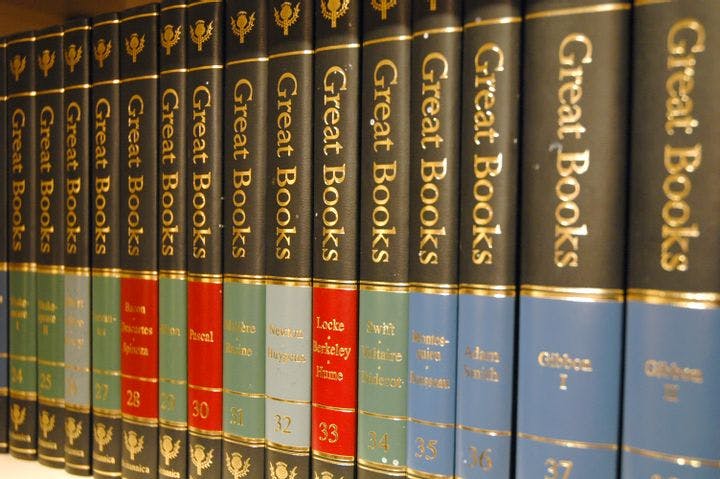Spring 2011
Words At Play
– Laura Kipnis
"Literature" is a shifting cultural status ascribed to books by critical arbiters of the moment, not an intrinsic quality.
In The Pleasure of the Text, critic Roland Barthes bemoaned the sorry state of literacy in his time, which was mid-1970s France. Half the population didn’t read at all, “a national disgrace.” Literary studies too was moribund, conquered by two tedious forms of moralizing: “the prevailing one, of platitude; and the minority one, of rigor.” It was a frigid, pleasure-challenged climate for literature. Barthes imagined an “antihero” who gains access to the bliss of reading by renouncing literary judgments altogether, instead savoring the contradictions and unpredictability inherent in language itself.
Marjorie Garber’s The Use and Abuse of Literature opens with a strikingly similar lament about literacy in her time, which is present-day America. The share of college graduates receiving English degrees is a shockingly low four per 100, and there’s been an accompanying drop in reading rates across all age groups. This is bad news not just for literature professors, but for democracy, since reading correlates strongly with various forms of civic participation. Garber’s approach to putting things right brings Roland Barthes’ antihero back to mind.
If anyone is qualified to rescue literature from the threat of irrelevancy, it’s Garber, the William R. Kenan Jr. Professor of English at Harvard, and author of some 15 books on cultural and literary matters, including six on Shakespeare alone. She simply knows everything there is to know about the history and practice of literature and criticism. Yet despite having written a sizable chunk of her previous books on our most venerated writer, Garber is not a proponent of the Great Books approach—she’s no fetishizer of the canon or timeless notions of quality. For her, “literature” is a shifting cultural status ascribed to books by critical arbiters of the moment, not an intrinsic quality. Rather, there are literary ways of reading, and literary ways of writing—a book becomes literature when we ask literary questions of it. Equally, books lose the status of literature when they fall from these considerations, the fate of many—perhaps the majority of—works by once-revered authors.
For Garber, literary ways of reading pose open-ended questions—the most interesting of which are those without definitive answers. What she’s dislodging with her deceptively anodyne suggestions are the traditional modes of criticism that hinge on judgments of quality. She’s deeply uninterested in what makes particular books good or bad; what engages her is how meaning is produced. She prefers the brand of criticism that engages in uncertainty, productive mistakes, and continuous re-readings that settle nothing—“every way of reading produces an equal and opposite way of re-reading.”
Useless speculation and lack of purpose are the heroes of this story. Along with Barthes, and another influential Frenchman she’s fond of invoking, deconstructionist Jacques Derrida, she upholds “play” as the watchword: Literary theory is at its best in “the play of language, the ambivalent ambiguities of the signifier, and the modes of counterintuitive argument.” If play is the hero, false dichotomies are the enemy. No binary goes undeconstructed: fiction and nonfiction, high and low, truth and lies, memoir and false memories.
Which isn’t to say that Garber is predictably trendy: One of the surprises here is her rousing support for that old warhorse, New Criticism, or “close reading,” in her mind a more inherently radical way of understanding texts than the sociological and historical methods that the denizens of English departments generally regard as “political.” The practice of mining literature for nuggets of self-help, whether ethical or psychological, also rouses her contempt. Reading Marcel Proust shouldn’t be the answer to anything, since literature’s refusal to be used is its “most moral act.” (She’s also oddly irked by books written from the point of view of animals—Laura Hillenbrand’s 2001 horseracing tale Seabiscuit comes in for some rare derision.)
To my mind, Garber is entirely right in every respect. But if literary studies is a way of asking literary questions, I can’t help asking one about Garber’s own literary style. I was left wondering what a defense of literature by Garber would read like if it embodied the imaginative play and stylistic freedom she celebrates, rather than the scholarly apparatus and muted tones she employs here. Garber has, after all, previously romped her way through such subjects as cross-dressing, the love of dogs, and the erotics of real estate, in books that were impressively researched but somewhat more unleashed. The Use and Abuse of Literature is an enormously learned and wide-ranging defense of the literary imagination, but as Garber herself says, “The future importance of literary studies... will come from taking risks, not from playing it safe.”
* * *
Laura Kipnis's most recent book is How to Become a Scandal: Adventures in Bad Behavior (2010). She is a professor in the Department of Radio, Television, and Film at Northwestern University.
Reviewed: "The Use and Abuse of Literatue" by Marjorie Garber, Pantheon, 2011.
Photo courtesy of Wikimedia Commons
